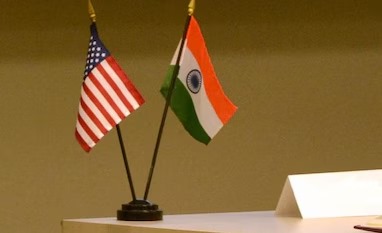US-India Ties Strengthened in Biden’s Indo-Pacific Strategy, Say Blinken and Austin
In a joint Op-ed for The Washington Post, US Secretary of State Antony Blinken and Secretary of Defense Lloyd Austin described the Biden administration’s Indo-Pacific strategy as a “latticework of bilateral and multilateral ties” where the US and India are investing in sectors that will shape the future, such as Artificial Intelligence and semiconductors, along with their cooperation as members of the Quad.
Blinken and Austin stated that President Joe Biden’s transformation of the US Indo-Pacific strategy, and its results, remains one of the “most important and least-told stories” of the foreign policy strategy advanced by President Biden and Vice President Harris. The Op-ed was published following the eighth ministerial meeting of the Quad in Tokyo on July 29.
The Biden administration, they noted, has shifted America’s hub-and-spoke relations with Indo-Pacific countries to not only strengthen existing one-to-one relationships in Asia but also to bring these partners together in new and innovative ways. They cited the elevation of the Quad to a leaders’ summit, the launch of AUKUS (a security partnership between Australia, the UK, and the US), and various three-way summits involving the US, South Korea, Japan, and the Philippines as significant changes.
“We elevated the regional grouping known as the Quad — Australia, India, Japan, and the US — to deliver hundreds of millions of lifesaving coronavirus vaccines, mobilize millions of dollars in digital-infrastructure investments, and advance the global clean energy transition,” Blinken and Austin wrote. They also highlighted the Indo-Pacific Economic Framework (IPEF), which includes 13 member countries including India, as part of these advancements.
The Biden administration has also focused on bolstering bilateral ties. “India and the United States are investing together across the sectors that will shape the future — from semiconductors to artificial intelligence to clean energy,” the officials stated. This includes the US-India initiative on Critical and Emerging Technology (iCET), with US National Security Adviser Jake Sullivan meeting his Indian counterpart Ajit Doval in June for a second round of talks on the initiative.
Describing the Indo-Pacific as a challenge when President Biden took office in January 2021, Blinken and Austin wrote, “America’s standing in this critical part of the world was at its lowest point in decades. The region was still reeling from the Covid-19 pandemic. Our allies and partners feared that the United States had become an unreliable friend. An increasingly aggressive China was taking advantage of America’s turn inward to advance its alternative vision of the world — a vision hostile to US interests.”
The Op-ed focused on China’s maritime aggression, specifically in the South China Sea, stating, “We’re pushing back together against China’s dangerous brinkmanship in the region’s waterways,” and referenced “China’s dangerous and provocative actions at sea.” Notably, there was no mention of China’s aggression in its land disputes, such as with India.
The Biden administration’s Indo-Pacific strategy underscores a commitment to strengthening alliances and partnerships in the region, with a particular focus on advancing technological and economic cooperation with India.


